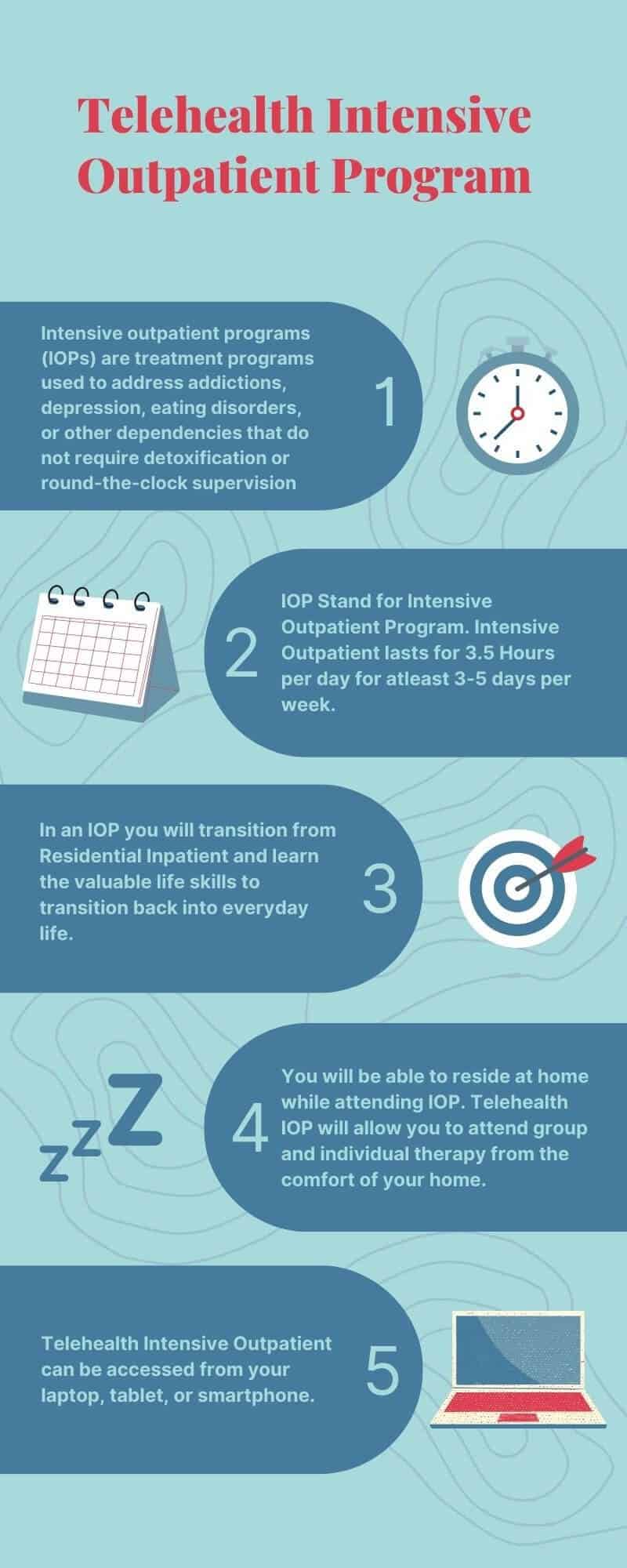How an Intensive Outpatient Program (IOP) Can Support Your Mental Wellness Journey.
How an Intensive Outpatient Program (IOP) Can Support Your Mental Wellness Journey.
Blog Article
Browsing the Complexities of Dual Medical Diagnosis Treatment Within an Intensive Outpatient Program Setting
In the realm of psychological health and wellness and addiction therapy, the intersection of twin diagnosis presents a nuanced challenge that demands a thorough and customized technique. By checking out the ins and outs of dual medical diagnosis therapy within this extensive outpatient context, a clearer path emerges towards alternative and sustainable recovery for those grappling with these linked obstacles.
Double Diagnosis Introduction

Comprehending dual medical diagnosis is essential as it requires an extensive and integrated method to therapy. By acknowledging the interplay in between substance usage and mental health and wellness, doctor can customize treatments to satisfy the unique requirements of each individual. This alternative technique not just addresses signs however additionally targets underlying variables that add to the twin diagnosis.
Additionally, unattended twin diagnosis can result in a cycle of relapse and getting worse mental wellness signs. By acknowledging the intricacy of twin diagnosis and offering customized care, medical care specialists can sustain people in attaining lasting recovery and boosted mental health.
Tailored Therapy Strategies
Identifying the intricate interplay between material usage conditions and mental health and wellness conditions, the growth of customized therapy plans is critical in addressing the intricacies of double diagnosis in psychological health treatment. Tailored treatment strategies are customized strategies that think about the distinct requirements, obstacles, and objectives of individuals encountering double diagnosis. These plans are made collaboratively by a multidisciplinary group of experts, including psychiatrists, psycho therapists, social workers, and dependency professionals, to guarantee extensive and integrated care.
Tailored treatment strategies typically entail a combination of treatments, medicines, and behavioral treatments that target both the substance use disorder and the mental wellness condition at the same time. These strategies may include cognitive-behavioral therapy, dialectical habits treatment, medication-assisted therapy, individual counseling, team therapy, and family members therapy, among various other evidence-based interventions. By tailoring treatment techniques to specific situations, tailored plans can attend to the origin of dual diagnosis, advertise long-term recuperation, and boost overall quality of life for people having problem with co-occurring conditions.
Integrated Treatment Strategy
An incorporated treatment approach in twin medical diagnosis therapy combines clinical, mental, and social interventions to address the complex requirements of individuals with co-occurring material use conditions and psychological health and wellness conditions. This method acknowledges that dealing with one facet of a twin diagnosis without attending to the various other can lead to inefficient outcomes. By integrating clinical treatments such as medication monitoring for mental health conditions with psychological therapies like cognitive-behavioral treatment for compound usage conditions, people obtain comprehensive treatment that targets blog all aspects of their dual diagnosis.
Additionally, the social facet of integrated care includes dealing with ecological aspects that might add to the growth or perpetuation of material usage and mental health issues. This can include household dynamics, real estate instability, or absence of social support. By incorporating social treatments like family members therapy, trade support, and neighborhood resources, the treatment becomes a lot more all natural and customized to the person's details needs. Generally, an incorporated treatment strategy in double diagnosis therapy within an extensive outpatient program setting aims to provide comprehensive, efficient, and individualized like people facing co-occurring problems.
Obstacles in IOP Setting
In the context of dual medical diagnosis treatment within an extensive outpatient program, browsing the complexities of co-occurring substance usage problems and mental wellness problems presents significant obstacles. Among the main hurdles in the IOP setting is the sychronisation of treatment between wikipedia reference psychological wellness professionals and drug abuse professionals to make sure a detailed treatment method. This calls for reliable interaction, cooperation, and a deep understanding of how these problems engage and influence each other.

Moreover, dealing with preconception and resistance to therapy within the IOP setting can restrain progression. Some individuals might be hesitant to disclose their double medical diagnosis or might feel ashamed, preventing their engagement in the restorative process. Conquering these obstacles necessitates an encouraging and non-judgmental environment that cultivates trust and visibility.

Collaborative Professional Initiatives
Effective double medical diagnosis treatment in an intensive outpatient program demands smooth partnership amongst psychological wellness experts and compound misuse experts to ensure a thorough and integrated approach to care. By working together, these professionals can develop personalized treatment strategies that provide to the special requirements of each patient, considering both their mental health and wellness and substance abuse difficulties.
Collaborative efforts likewise expand to routine communication and information sharing amongst group participants to guarantee a cohesive therapy technique. This may involve instance seminars, joint sessions with the patient, or shared paperwork additional info to track progression and readjust treatment strategies as needed. Furthermore, collaboration might include entailing other healthcare specialists such as health care physicians or household therapists to supply alternative support to the individual. Ultimately, a united front of specialists interacting improves the effectiveness of dual diagnosis treatment within an intensive outpatient program.
Final Thought
To conclude, effective dual medical diagnosis treatment within an intensive outpatient program setting needs customized therapy strategies and an incorporated treatment strategy. Obstacles may develop in this setting, but joint initiatives among professionals can assist navigate these intricacies. By resolving the distinct needs of individuals with co-occurring mental health and material utilize disorders, IOP programs can provide extensive and alternative care to support recovery and total well-being.
Report this page